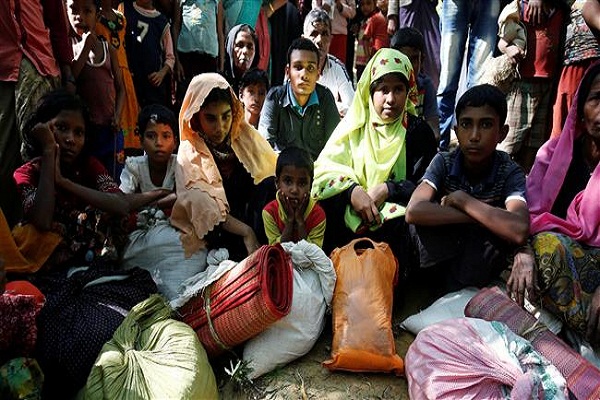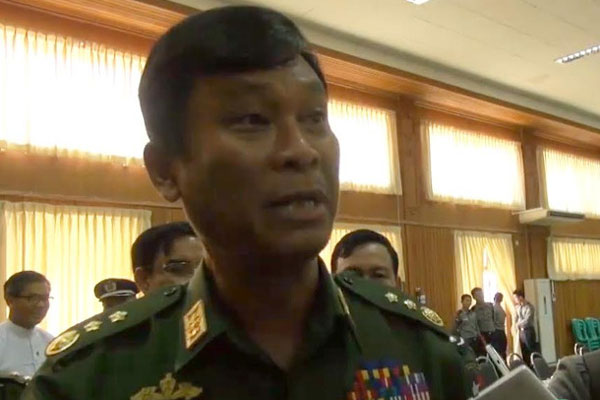Myanmar Says Malaysian Aid for Rohingya Muslims ‘An Insult’

Lieutenant General Kyaw Swe, who served as minister of border affairs under the previous government, made the comment to reporters after a meeting of Myanmar’s central anti-human trafficking organization about the boats laden with 200 metric tons of rice, medical aid, and essential supplies for Rohingya Muslim communities, which are scheduled to depart Malaysia on Jan. 10.
"It is impossible to accept it because it doesn't make any sense,” he said. "It must be done as a government-to-government matter. They can’t go straight to Rakhine state.”

"It shouldn’t be accepted, and we won’t accept it,” he said. "If they want to do it, then they have to do it through the foreign affairs ministry and must inform the central government. We can’t accept it if they just do it with the Rakhine state government.”
"It is an insult,” he said, RFA reported. "We won’t accept it. We are sorry.”
Zaw Htay, spokesman of the President’s Office, warned on Wednesday that the organization, which has not yet obtained permission from the Myanmar government to enter the country, can do so when the boats arrive or risk being stopped or attacked by Myanmar security forces, and its crew deported.
The Indonesian government has already sent 10 shipping containers of food, baby food, and clothes for Rohingya affected by the violence in northern Rakhine.
The two predominantly Muslim countries called on Aung San Suu Kyi, Myanmar’s de facto leader, to allow unimpeded humanitarian access to the areas affected by violence when they and other member states of the Association of Southeast Asian Nations (ASEAN) met with her on Dec. 19 to discuss the crisis in northern Rakhine.
In another development, Bangladesh’s Foreign Ministry said some 50,000 Rohingya Muslims have fled persecution and violence in Myanmar to Bangladesh since early October.
The Foreign Ministry in Dhaka said in a statement on Thursday that thousands of members of the ethnic minority had fled to Bangladesh since an eruption of unrest in Myanmar's western state of Rakhine in early October. Rakhine, home to the Rohingya Muslims, borders Bangladesh.
The ministry also summoned Myanmar's ambassador to express "deep concern at the continued influx" of Rohingya Muslims.
"(We) mentioned that around 50,000 Myanmar citizens took shelter into Bangladesh since October 9, 2016," the ministry said.
Meanwhile, a spokesman for the United Nations High Commissioner for Refugees (UNHCR) has confirmed that at least 43,000 Rohingya Muslims have taken shelter in Bangladesh since October.
Senior officials in Dhaka have also demanded early repatriation of all Myanmar’s citizens who have been living in Bangladesh for years.
Figures show some 300,000 Rohingya Muslims are living in Bangladesh, with the vast majority of them having taken refuge in makeshift settlements, official refugee camps and villages in Bangladesh's resort district of Cox's Bazar.
Many of those interviewed by journalists have told horrific stories of gang-rape, torture and murder at the hands of Myanmar government forces.
Myanmar's military has launched a fresh wave of crackdown on Muslims since an alleged attack on the country’s border guards on October 9 left nine policemen dead. The government blamed the Rohingyas for the assault.
There have been numerous accounts by eyewitnesses of summary executions, rapes and arson attacks against Muslims since the crackdown began. The military has blocked access to Rakhine and banned journalists and aid workers from entering the zone.



